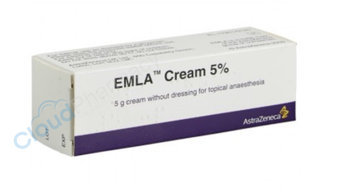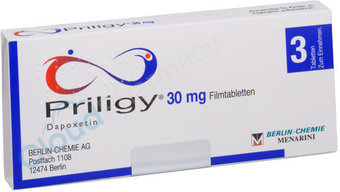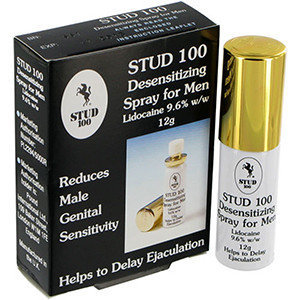Premature Ejaculation

More information
Introduction
Premature Ejaculation Treatment
Premature ejaculation is the process by which a man ejaculates quickly during sexual intercourse with a partner. There is no defined time or average time linked to how long penetrative sexual intercourse should last for a man, meaning it is hard to define what premature ejaculation is in terms of time, it is more so linked to what the man sees as satisfactory when it comes to the length of intercourse with his partner.
If you are struggling with premature ejaculation, Cloud Pharmacy provides a range of premature ejaculation treatments that are available through our online pharmacy, from sprays and creams to tablets.
As soon as your online consultation has been checked and confirmed by one of our doctors, then we will send the medication to you in an unmarked package using our swift courier service.
To read more about premature ejaculation and its treatments, visit the NHS website. If you have not used any of the treatments before then we strongly advise that you read the patient information leaflets before use, which can all be found on medicines.org.uk.
Treatments
More information
Once an online consultation has been been approved by our medical team, our pharmacy will safely prepare and ship your treatment to you in discreet packaging using Royal Mail or DPD.
What Is Premature Ejaculation?
Premature Ejaculation is the process by which a man ejaculates quickly during sexual intercourse with a partner. A study conducted across 500 couples found that on average it takes between 5 and 6 minutes for a man to ejaculate. Globally, someone is described as suffering from premature ejaculation if they ejaculate consistently inside a minute.
That being said, this is an average across a small sample group and it is up to a couple to determine what the satisfactory length of intercourse is before a man ejaculates.
Premature ejaculation is also known as a premature climax, early ejaculation, or rapid ejaculation.
What Causes Premature Ejaculation?
Premature ejaculation in men is more common than one might think with many experiencing at some point in their lives. There are a variety of factors that contribute to PE, be it hypersensitivity in certain parts of the body, performance anxiety, or even strain caused by certain sexual positions. We take a deeper look below.
The causative issues relating to premature ejaculation are very much varied and often unclear when trying to diagnose it as it can, in some cases, be subjective. Doctors now know that premature ejaculation involves the interaction of psychological and biological factors. PE can be broken down into two categories, acquired and chronic premature ejaculation.
Acquired or an acute display of premature ejaculation implies that this has developed over time or has happened sporadically during a man’s sex life with his partner. Acquired PE can be linked to and caused by various lifestyle factors and health conditions such as diabetes and high blood pressure.
Acquired or acute PE can also be caused by psychological factors like anxiety and depression. Premature ejaculation has also been linked with drinking too much.
However, one of the most common causes of acute/acquired PE is linked to being overly exciting or being anxious about sexual performance. This type of PE is most common in younger men, generally under 35, however, it also affects most people who are starting new relationships/experiences.
As the name suggests, chronic premature ejaculation is a lifelong condition that is present from the age of puberty. Studies have suggested that the underlying causes for this could either be psychological, cultural practices, or stigmas and/or childhood sexual trauma.
Symptoms of Premature Ejaculation
The main symptom associated with PE is that of ejaculating too quickly, within one minute following penetration. PE is not only associated with sexual intercourse, those that suffer from PE might also find it hard to delay ejaculating in other sexual situations such as masturbation.
How to Stop Premature Ejaculation
There are a number of approaches that one can take when trying to improve the length of time it takes to ejaculate. Some of these approaches involved self-help techniques that don’t require medical input. Others involve potential therapy with a trained professional. Finally, medication does exist and is readily available as a final port of call.
Self Help Techniques
Use a thicker condom
Using a condom during sex has been shown to aid in the delay of ejaculation for men. A thicker condom is advised as it decreases the sensitivity of the penis. Over-the-counter ‘delay’ condoms are available from leading condom providers that aid in the delay of ejaculation through the numbing of the tip of the penis.
Masturbating before intercourse
Masturbating before you engage in sexual intercourse is another popular technique. By masturbating 1-2 hours before intercourse, the thought process goes that experiencing a release close to intercourse, it will result in a delayed ejaculation when it comes to spending time with your partner.
Stop-start technique
Often referred to as ‘edging’ bearing reference to ‘getting close to the edge’, the stop-start technique involves engaging in intercourse until such time that you feel you are about to ejaculate. At this point, the man will stop engaging or pull out altogether until such time that his arousal has died down. The idea is that you then continue until you need to do this again.
Partner on top technique
In this situation, the woman stays on top and stops engaging once her partner is close to ejaculation. This way, she is able to easily pull away in this position.
Pause-squeeze technique
When a man is close to climaxing, pull away and get your partner to squeeze the tip of your penis until such time that feelings of arousal have died again. Continue to engage and repeat until the time is right to ejaculate.
Breathing techniques
Whilst engaging in intercourse, attempt to control your breathing which will, in turn, help to regulate the rate at which your heart is beating. By taking deep breaths and regulating your breathing, may help to slow down the ejaculatory reflex.
Psychological Help
Individual psychotherapy
Before we go any further, it must be noted that there is absolutely nothing wrong with engaging with a psychologist for PE or any issue for that matter.
One-on-one psychology sessions can be beneficial in that it may help with isolating the root of any issue that might be the cause of one’s PE issues. This can stem from traumatic experiences through to more accessible issues to address such as anxiety.
Couples therapy
Premature ejaculation problems are sometimes rooted in issues within a relationship. If you’re in a long-term relationship with your partner and feel comfortable, couples therapy or ‘sex therapy’ might be the way to go.
Every relationship is different which contributes to a host of potentially different scenarios that may be contributing to one’s PE. Speaking through issues with your partner with a trained professional meditating may help to isolate particular issues that can be worked on together that may help.
Premature Ejaculation Medication
In the event that you have tried the various techniques discussed above and nothing seems to be working, premature ejaculation medication might be the way to go.
Pill based medication
There exist a few options when it comes to pill-based premature ejaculation, Priligy is considered the market leader in this regard. Containing the active ingredient dapoxetine,
Priligy tablets are part of the SSRIs (Selective Serotonin Reuptake Inhibitors) medication family, which essentially works by reducing the uptake of serotonin in the brain, a chemical linked to ejaculation and climax in general. In certain cases, it has been found to delay ejaculation time by up to 300%.
Topical Creams
Topical creams, such as Emla Cream 5%, are an anesthetic-based numbing cream that contains the active ingredients lidocaine and prilocaine. Topical creams work by reducing sexual arousal and sensation in the penis, essentially numbing the tip which has been shown to contribute towards delayed ejaculation time.
Desensitizing Sprays
Similar to topical creams in outcomes, the application is delivered in the form of a spray that is applied to the penis before intercourse. Products such as Stud 100 Desensitizing Spray contain the active ingredient lidocaine, which helps to numb the penis, reducing the sexual sensation experienced.
Guides
How it works
First...
Complete a quick eligibility check
Then...
Order your treatment
Finally.
Fast, confidential delivery to your door






















